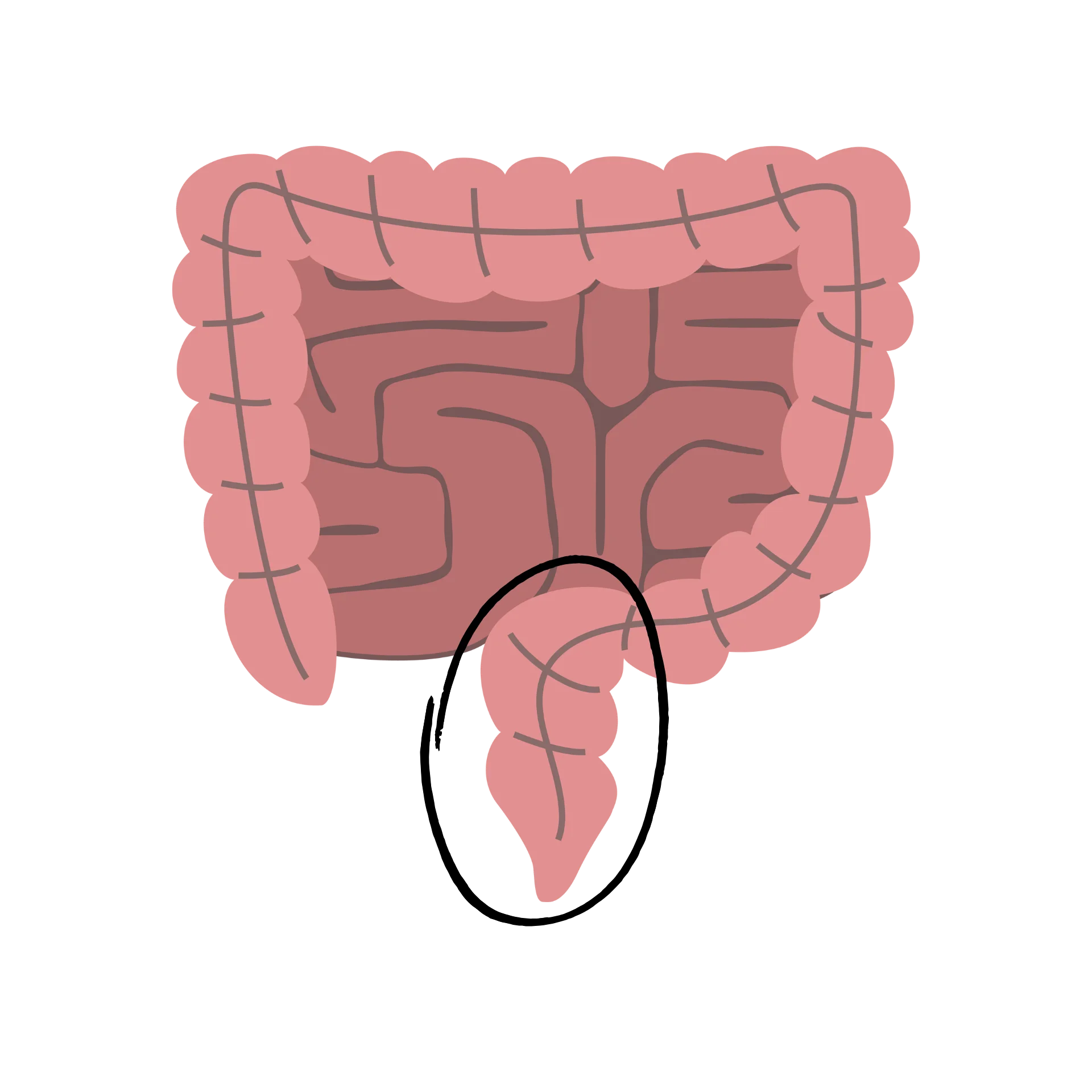Rectum and Anus
The rectum and anus are a part of the last two sections of the digestive tract and are very near to each other. These organs, much like any other part of the body, can develop cancer. Cancer is an abnormal growth of cells that can be dangerous and cause problems if not taken care of.

Rectum
Rectal cancer develops in the last few inches of your colon, called the rectum. The rectum stores waste until it is released from the body.

Anus
Your anus is the opening that allows waste to leave the body. Anal cancer develops in the anal canal, a very short tube that brings your waste from your rectum to your anus.
Factors that can increase your risk of developing rectal or anal cancer include:
- Old age (50+)
- History of cancer
- Inflammatory bowel disease
- A diet low in vegetables
- Little-to-no exercise
- Diabetes
- Obesity
- Smoking
- Consumption of alcohol
- Many sexual partners
- Anal sex
- HPV – Human Papillomavirus
Screening Procedures

Digital Rectal Exam
During a digital rectal exam, your doctor inserts a gloved finger into your anal canal to feel for abnormalities or areas of concern.

Colonoscopy
During a colonoscopy, your doctor inserts a small camera tube into your rectum to check your intestine for abnormalities. During this test, the doctor could also remove tissue.

Imaging Tests
During an imaging test, your doctor searches to see if cancer has spread to other parts of the body. These imaging tests may include a CT scan, PET scan, or MRI.

Blood Tests
During a blood test, a sample of your blood will be taken to analyze the functionality of the organs in your body. This can help determine if there is a potential presence of cancer.

Ultrasound
During an ultrasound, your doctor will insert a probe into your anal canal and rectum. This probe releases high-energy sound waves that allow an image of the inside of the body to be created, for your doctor can search for abnormalities.

